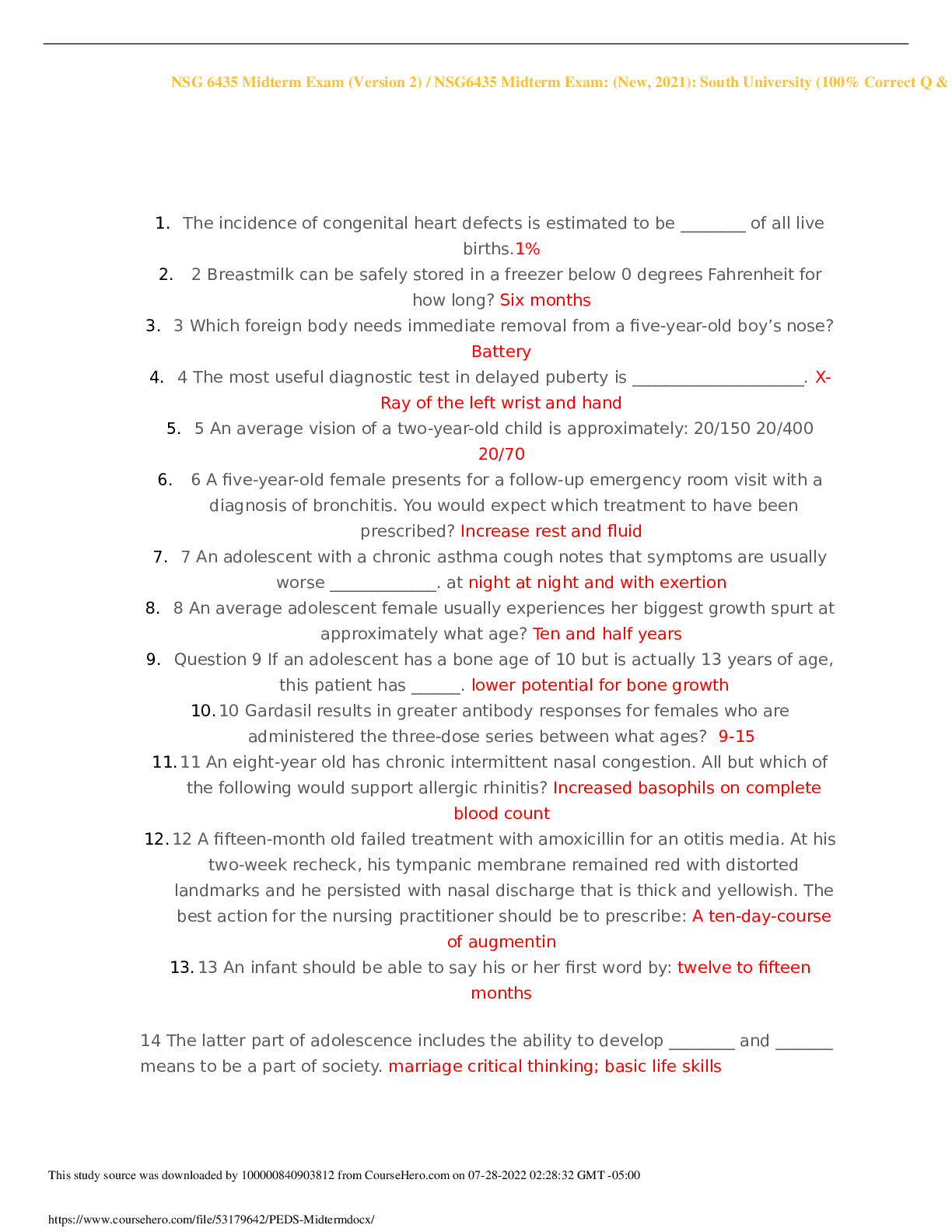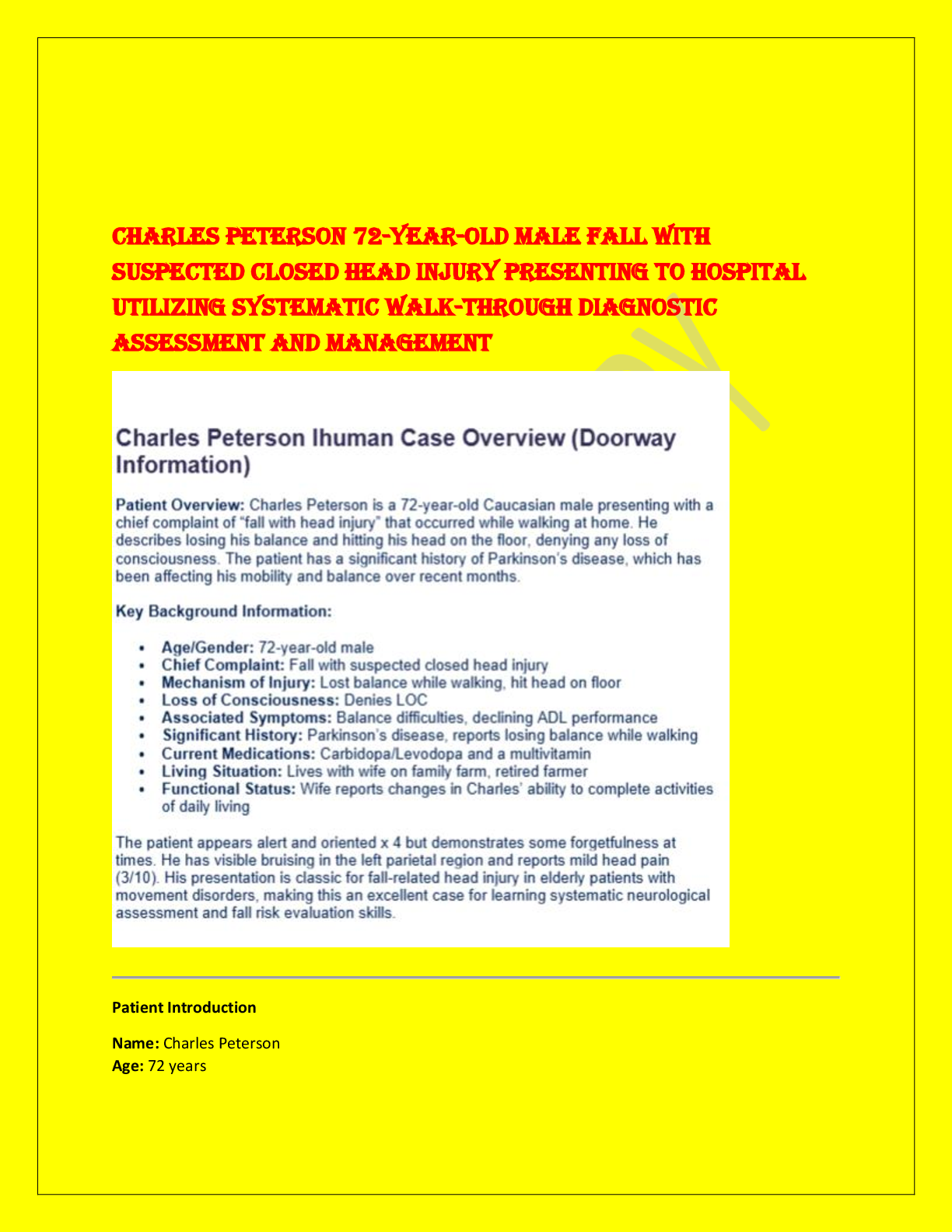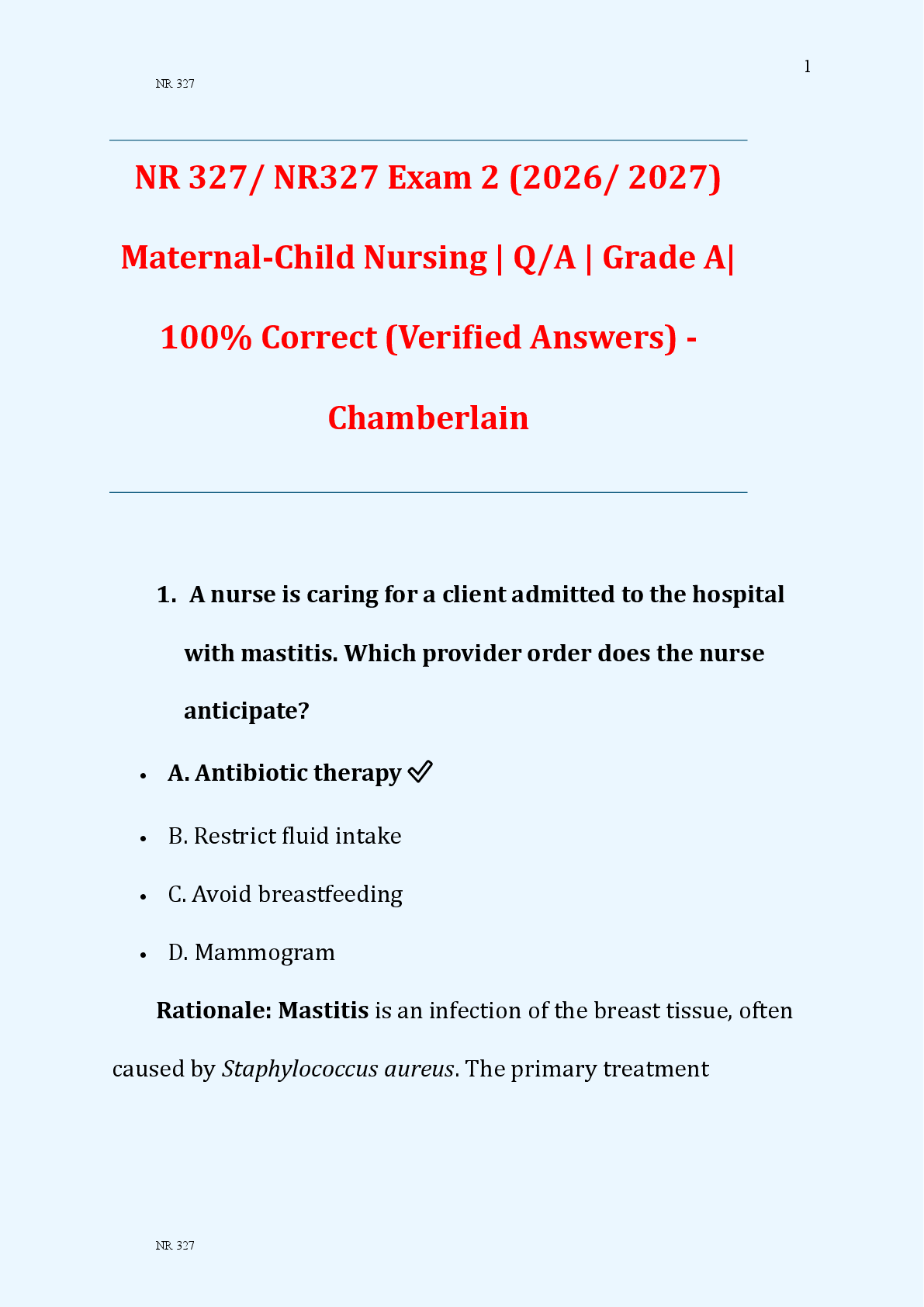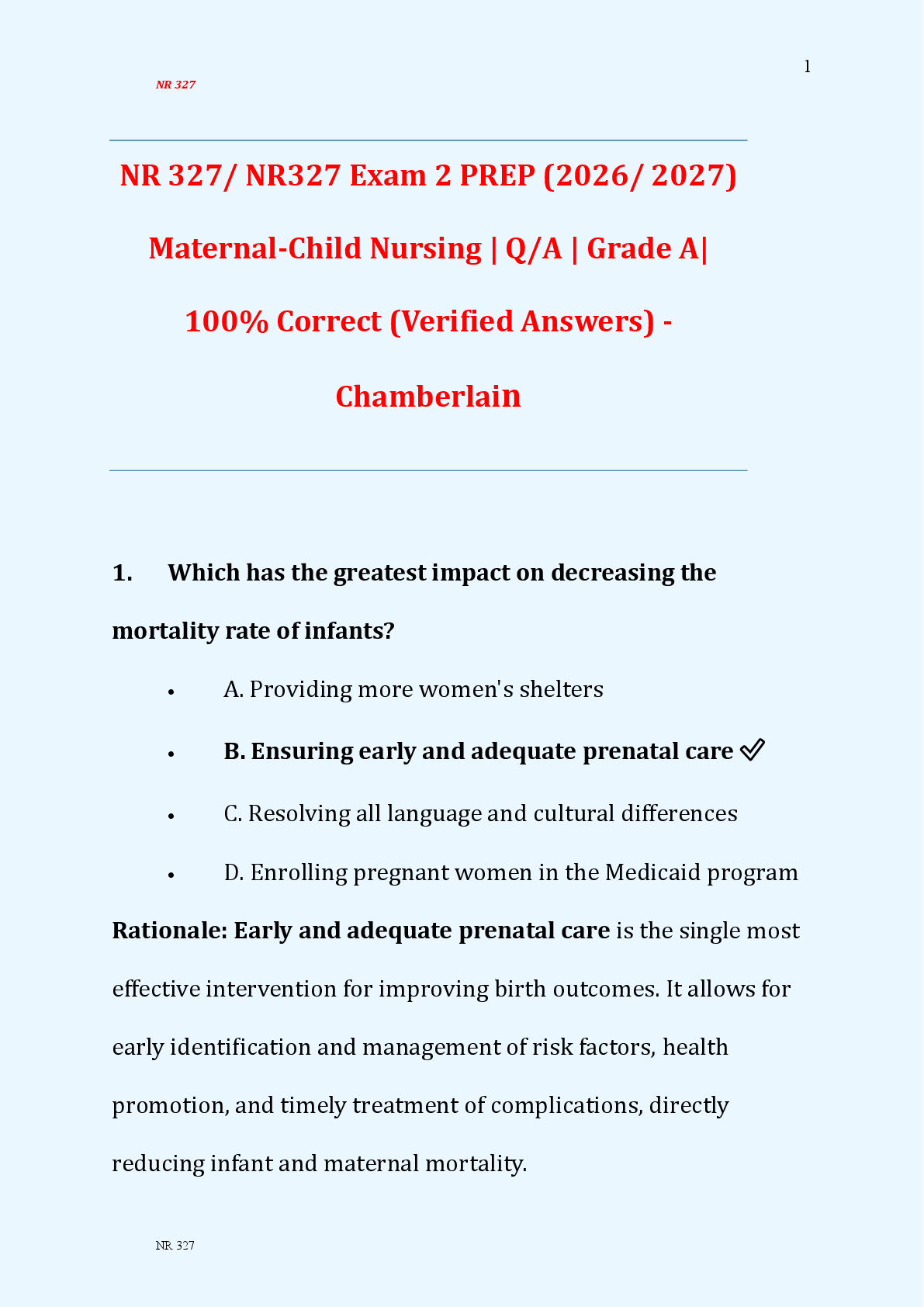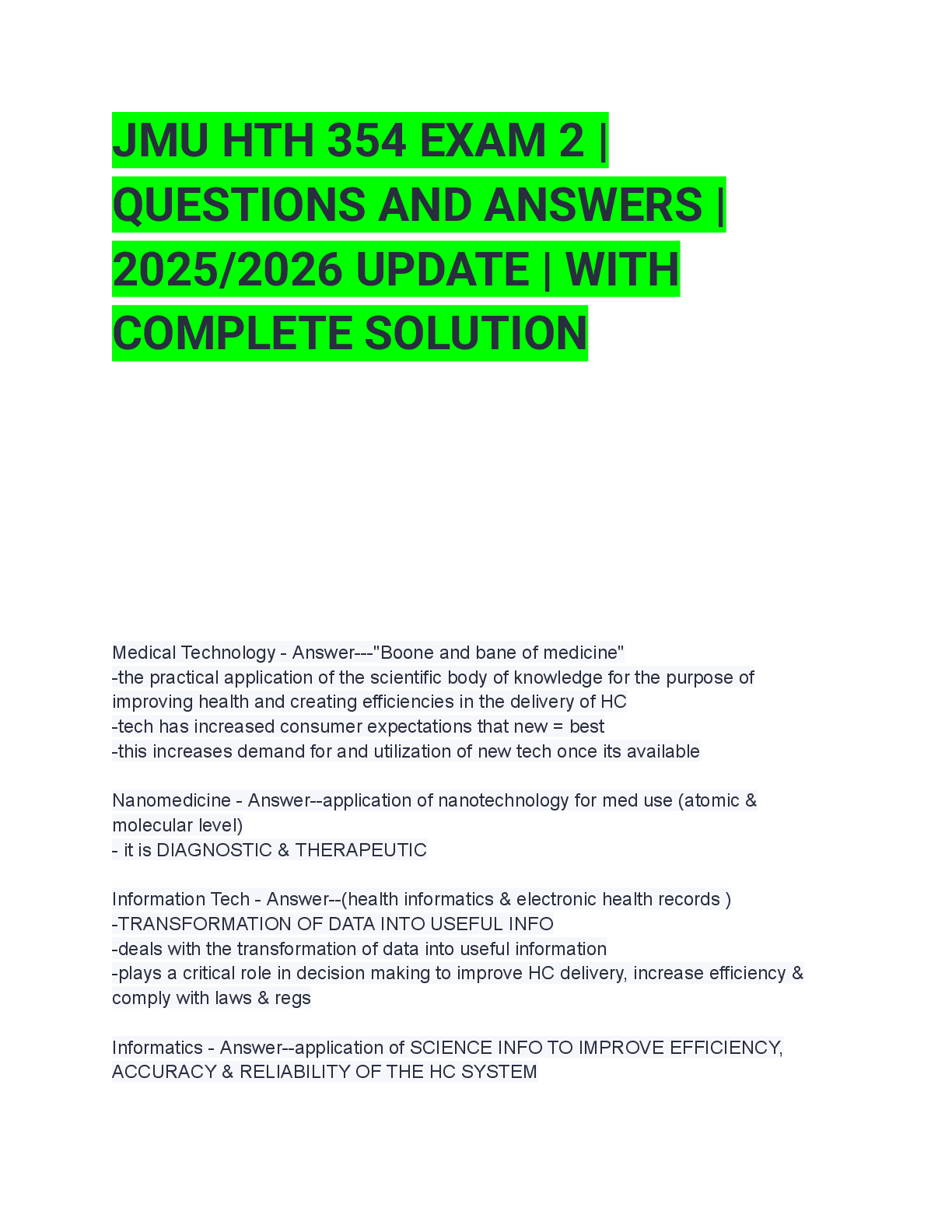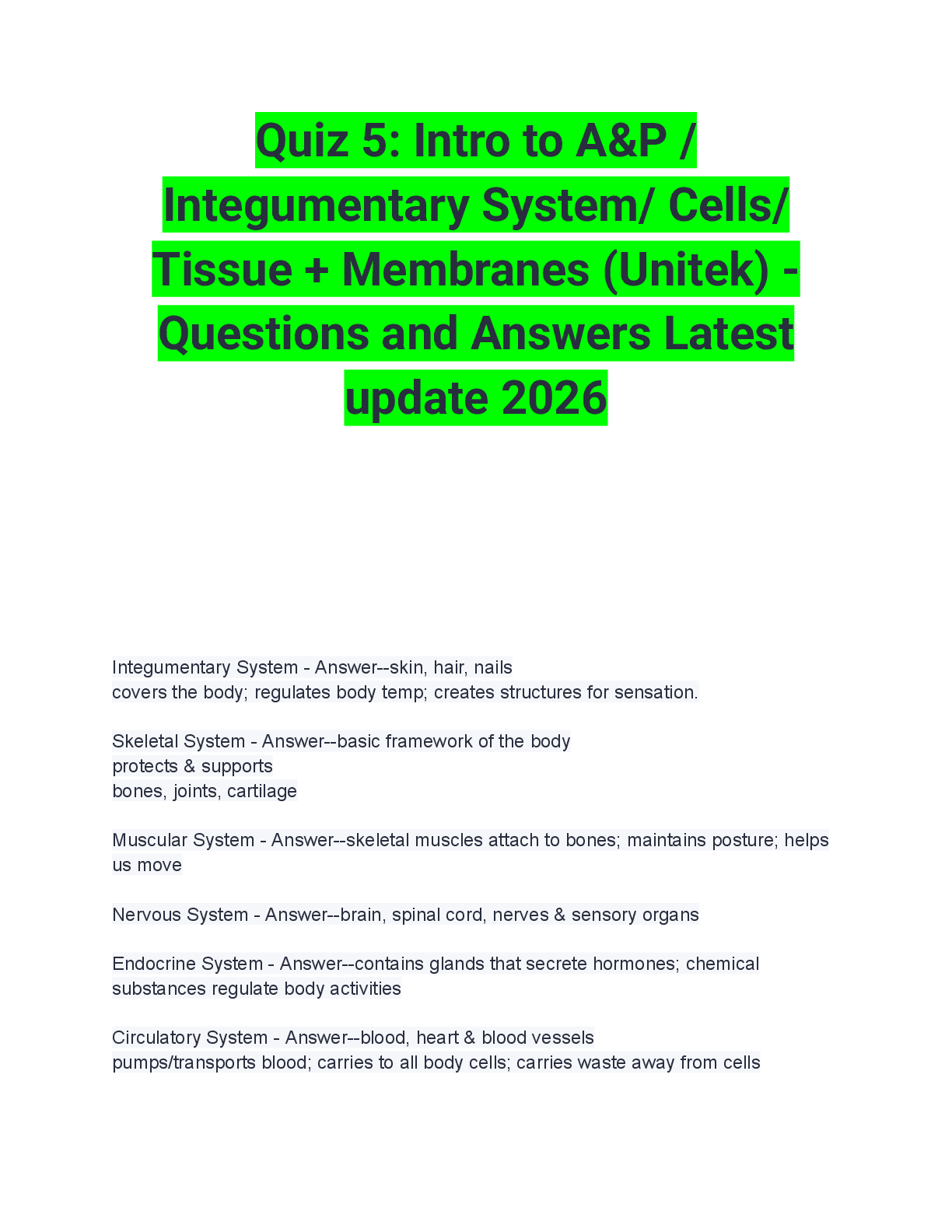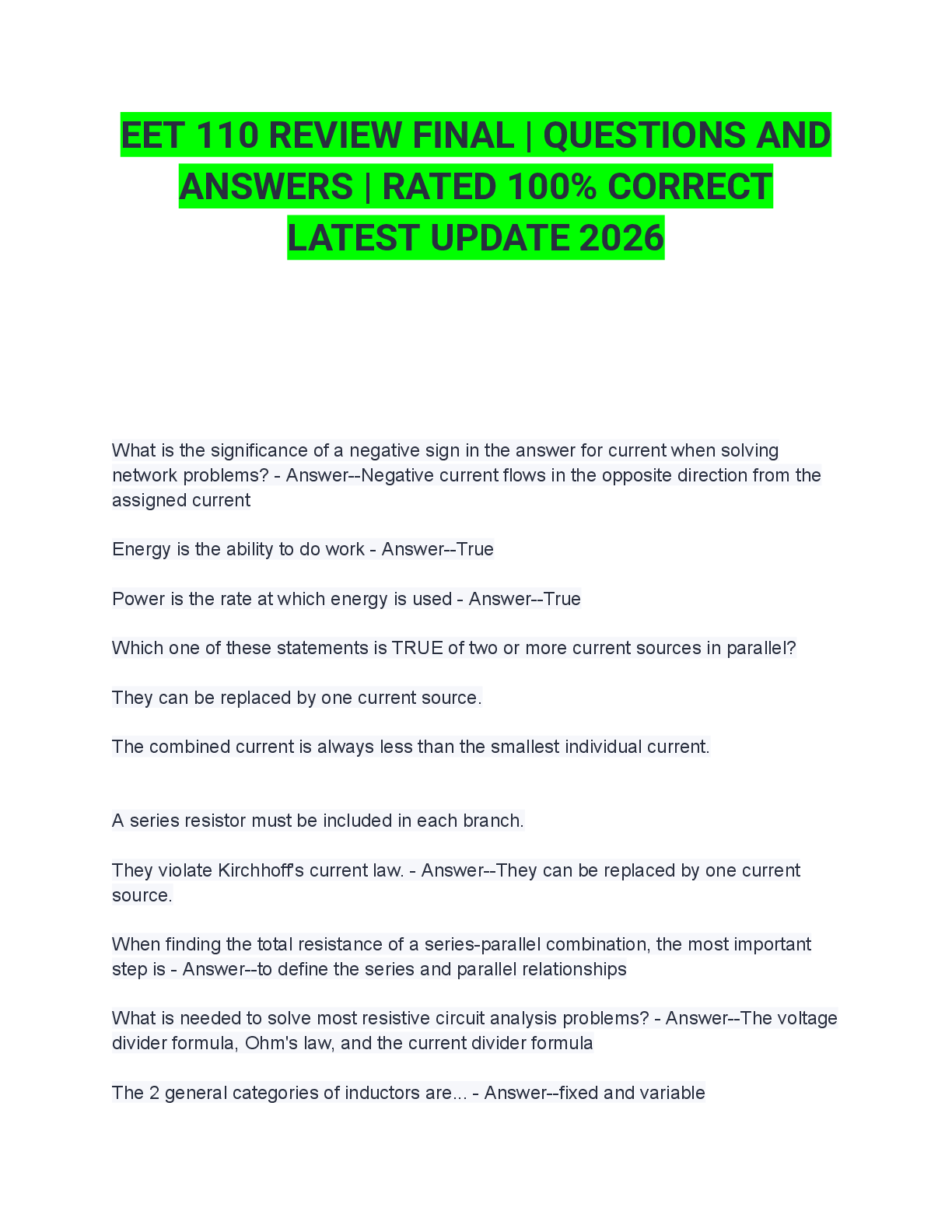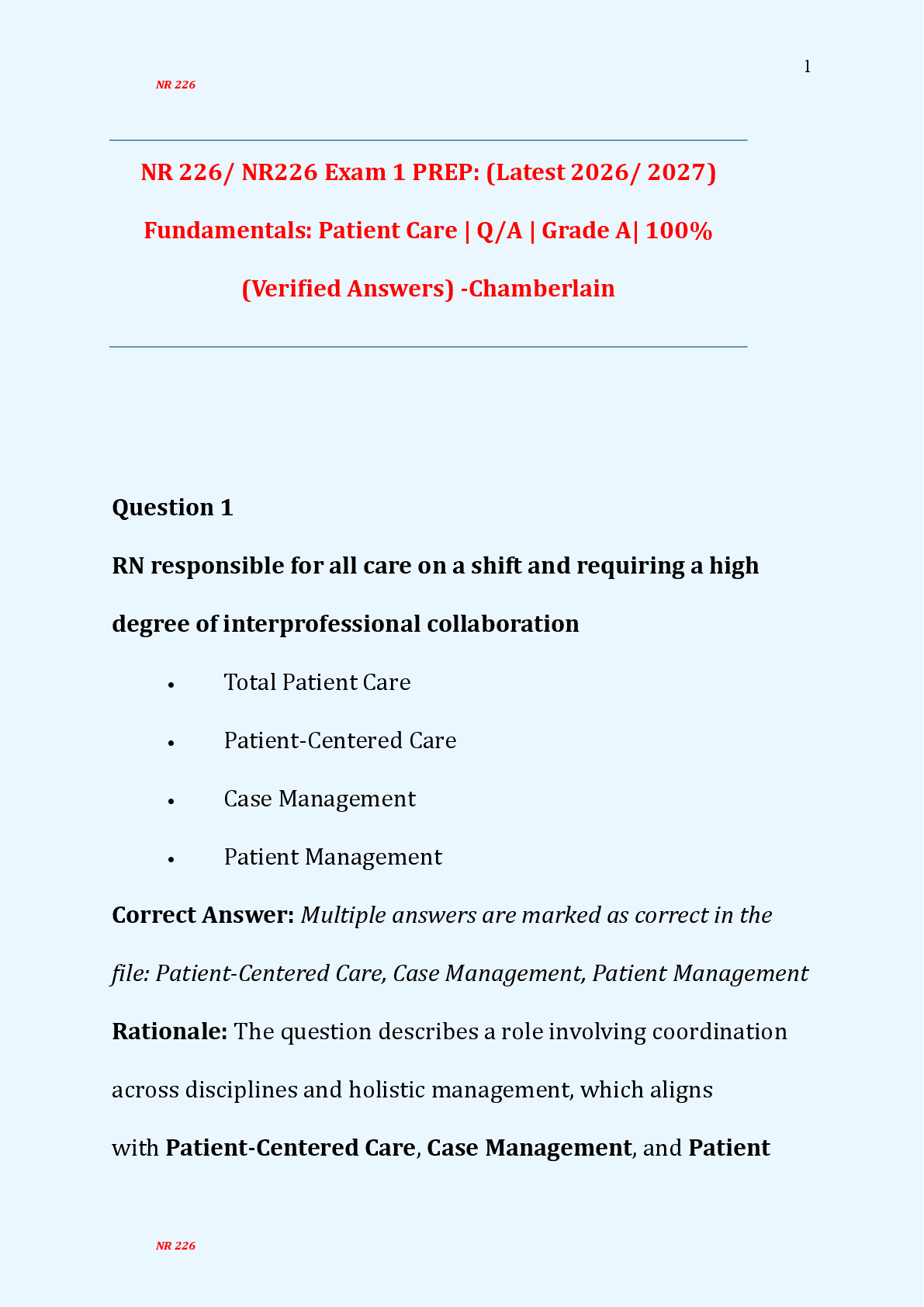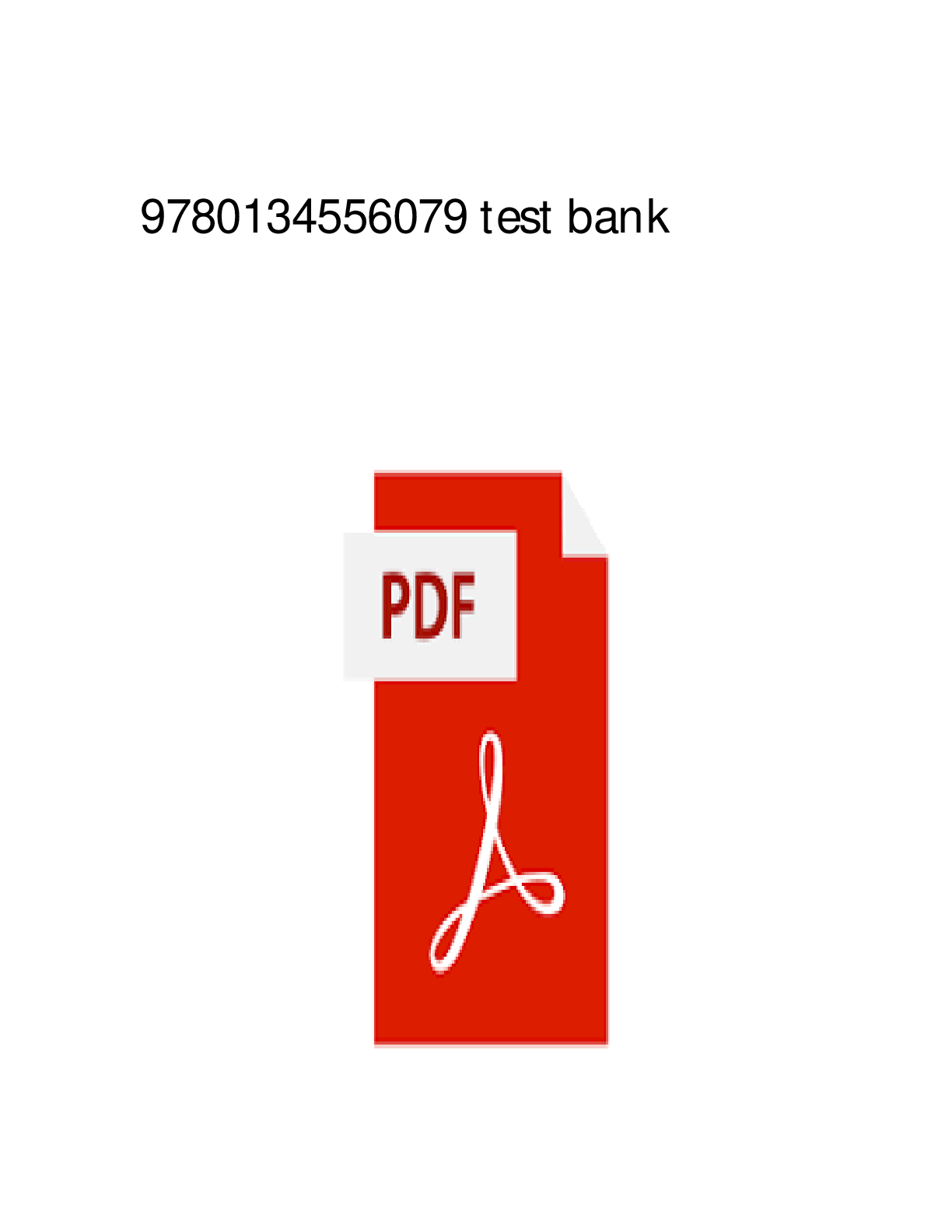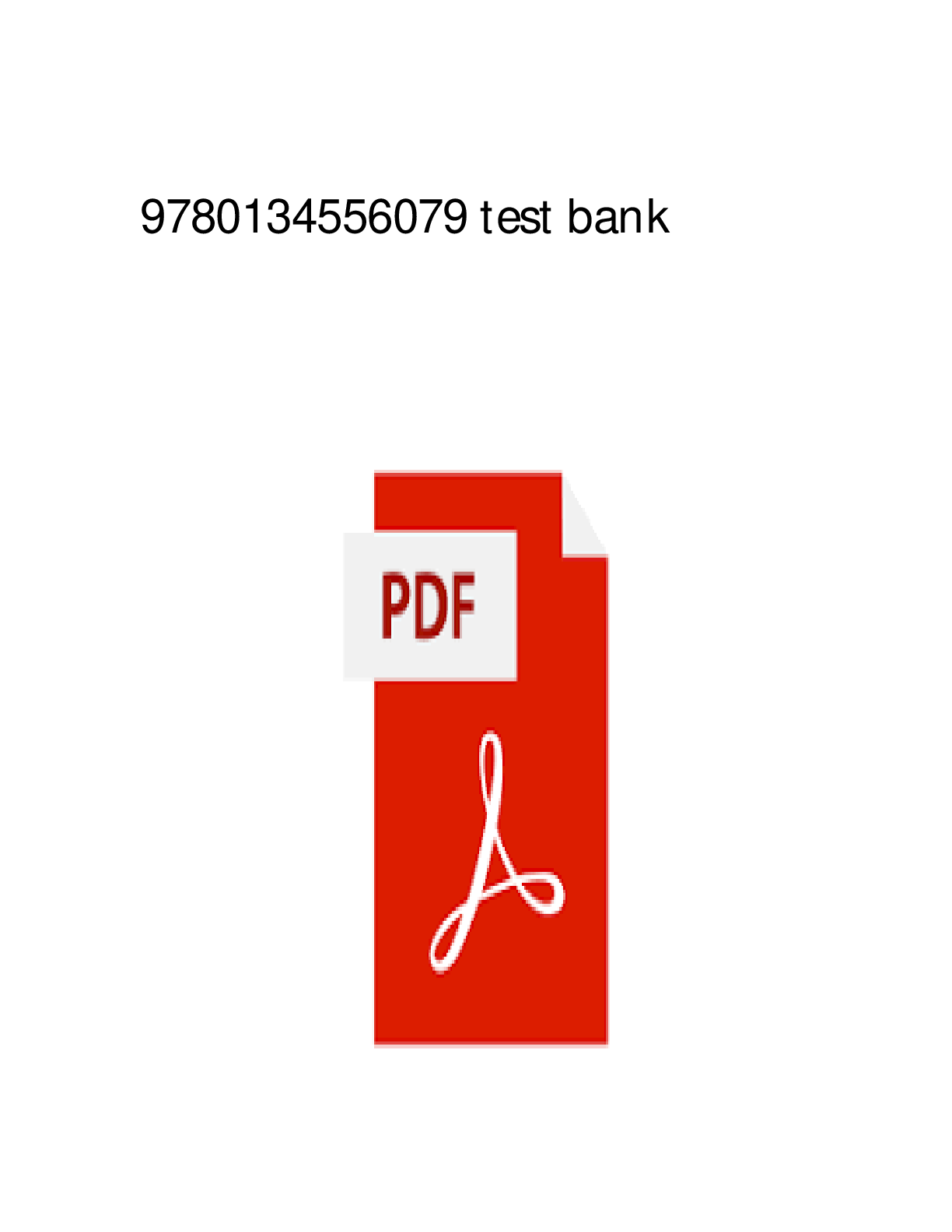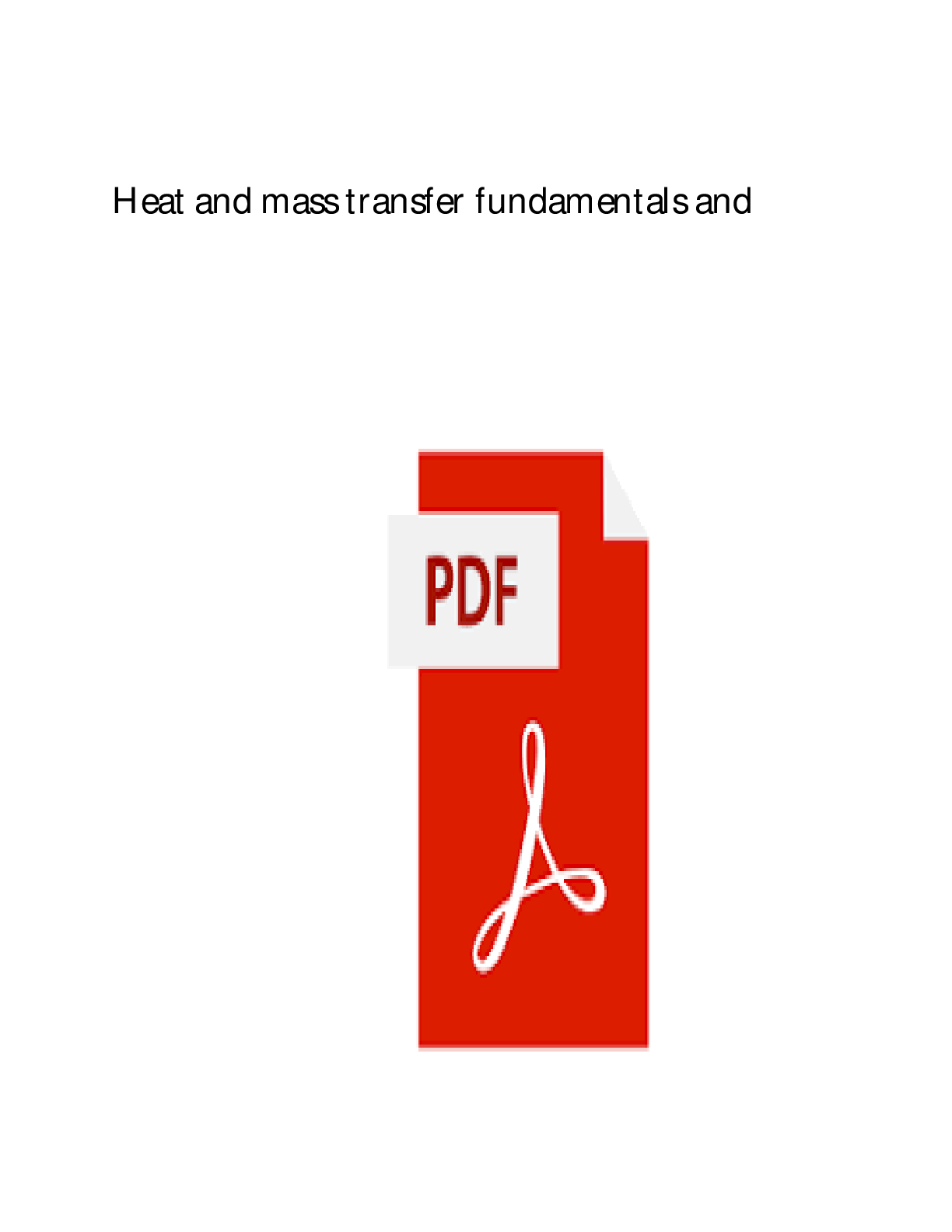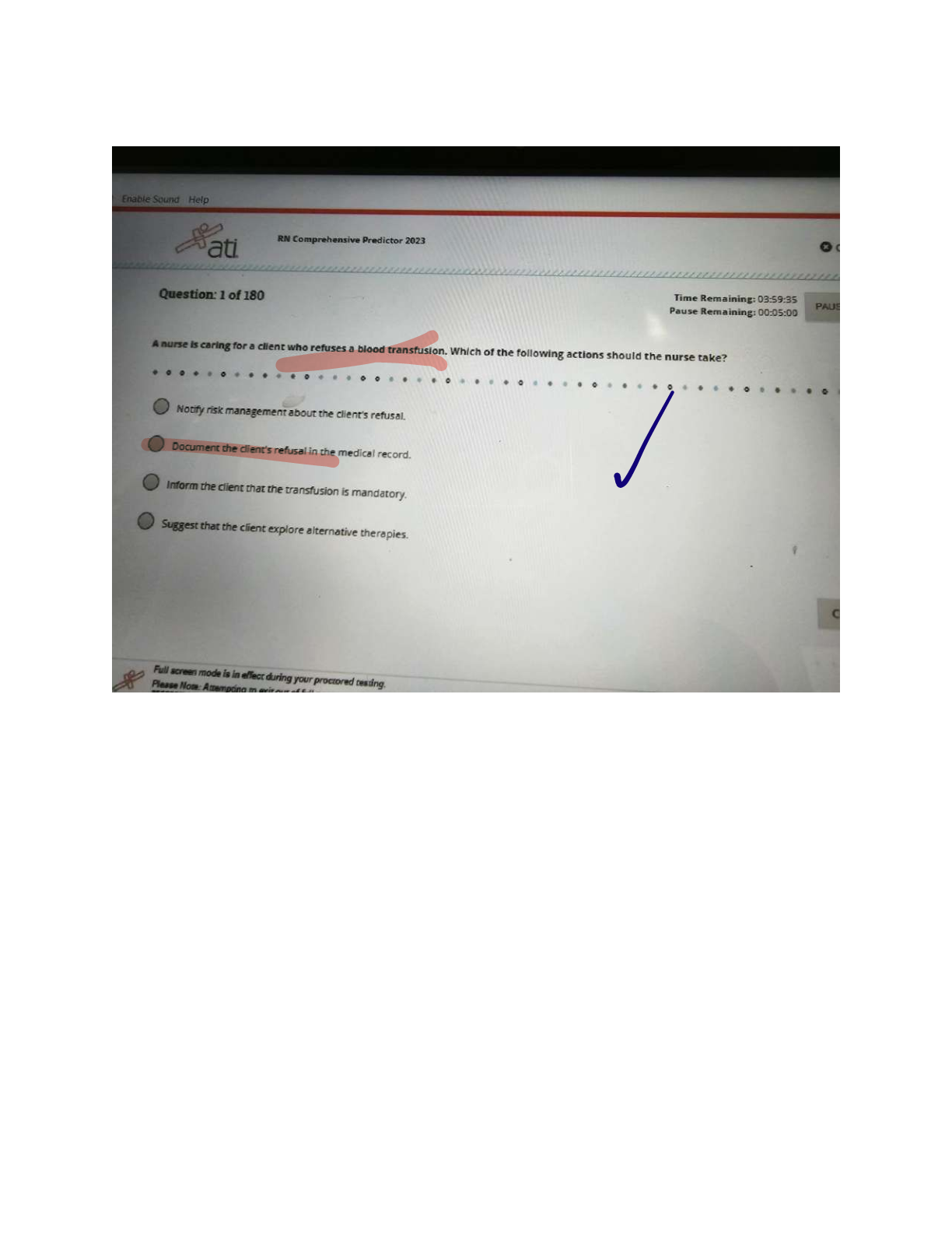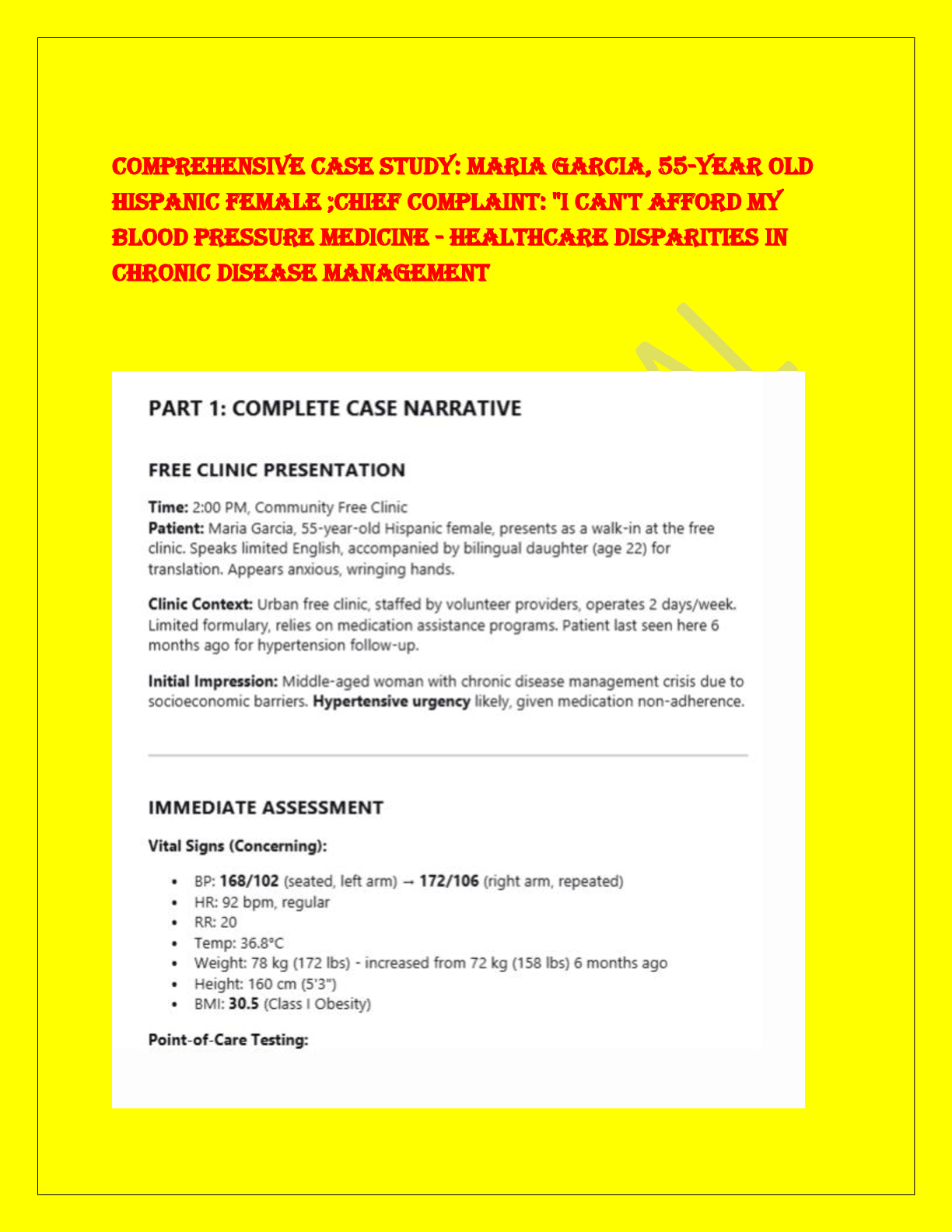Take Test: Quiz - Week 8 Knowledge Check
Test Information
Question Completion Status:
QUESTION 1
1. The nurse practitioner diagnoses epididymitis in a 24 year old sexually active male patient. The
drug of choice fo
...
Take Test: Quiz - Week 8 Knowledge Check
Test Information
Question Completion Status:
QUESTION 1
1. The nurse practitioner diagnoses epididymitis in a 24 year old sexually active male patient. The
drug of choice for treatment of this patient is:
a. Oral ciprofloxacin (Cipro)
b. Oral doxycycline (Virbamycin) plus intramuscular ceftriaxone
c. Oral trimethoprim-sulfamethoxazole (Bactrim DS)
d. Intramuscular penicillin
1 points
QUESTION 2
1. Which of the following is not a risk factor associated with the development of syndrome X and
type 2 diabetes mellitus?
a. Hypertriglyceridemia and low high-density lipoprotein (HDL)
b. Gestational diabetes and polycystic ovarian syndrome
c. Hispanic, African-American, Native-American, and Pacific Islander ethnicity
d. Postprandial hypoglycemia
1 points
QUESTION 3
1. A 20 year old male patient complains of “scrotal swelling.” He states his scrotum feels heavy, but
denies pain. On examination, the nurse practitioner notes transillumination of the scrotum. What is
the most likely diagnosis?
a. Indirect inguinal hernia
b. Hydrocele
NRNP 6531 WEEK 8 KNOWLEDGE CHECK
c. Orchitis
d. Testicular torsion
1 points
QUESTION 4
1. Which of the following are classic features of ulcerative colitis?
a. Right lower quadrant pain, frequently accompanied by a palpable mass, fever, and
leukocytosis.
b. Painful hematemesis, occasionally accompanied by melena.
c. Rapidly progressive dysphagia with ingestion of solid foods, anorexia, and weight loss out
of proportion to the dysphagia.
d. Remissions and exacerbations of bloody diarrhea, tenesmus, fecal
incontinence, abdominal pain and weight loss.
1 points
QUESTION 5
1. Steve, age 69, has gastroesophageal reflux disease (GERD). When teaching him how to
reduce his lower esophageal sphincter pressure, which substances do you recommend that he
avoid?
a. Apples
b. Peppermint
c. Cucumbers
d. Popsicles
s
QUESTION 6
1. Diagnostic confirmation of acute leukemia is based on:
a. Bone marrow aspiration and biopsy
b. Pancytopenia
c. Hyperuricemia
d. All of the above
1 points
QUESTION 7
1. John, age 33, has a total cholesterol level of 188 mg/dL. How often should he be screened for
hypercholesterolemia?
a. Every 5 years
b. Every 2 years
c. Every year
d. Whenever blood work is done
1 points
QUESTION 8
1. Of the following choices, the least likely cause of cough is:
a. Asthma
b. Gastroesophageal reflux
c. Acute pharyngitis
d. Allergic rhinitis
1 points
QUESTION 9
1. Which of the following patients most warrants screening for hypothyroidism?
a. A young adult female with postpartum depression lasting 2 weeks.
b. A patient taking thyroid replacement preparation.
c. A 40 year old male with unexplained tremors.
d. An elderly female with recent onset of mental dysfunction.
1 points
QUESTION 10
1. After thorough history, physical examination, and laboratory tests, a patient is diagnosed with
irritable bowel syndrome (IBS). Which of the following initial treatment plans is currently considered
most effective?
a. A low fat, tyramine-free, caffeine-free, high fiber diet, along with a daily
diary, and attention to psychosocial factors.
b. Referral to a gastroenterologist for colonoscopy.
c. Treatment with a selective serotonin reuptake inhibitor (SSRI) such as fluoxetine (Prozac)
or sertraline (Zoloft).
d. Antibiotics, nutritional support, and high fiber diet.
1 points
QUESTION 11
1. A patient presents with classic symptoms of gastroesophageal reflux disease (GERD). He is
instructed on life style modifications and drug therapy for 8 weeks. Three months later he returns,
reporting that he was “fine” as long as he took the medication. The most appropriate next step is:
a. Referral for surgical intervention such as a partial or complete fundoplication
b. Dependent upon how sever the practitioner believes the condition
c. To repeat the 8 week course of drug therapy while continuing lifestyle modifications
d. Investigation with endoscopy, manometry, and/or pH testing
1 points
QUESTION 12
1. What is the most common cause of Cushing’s syndrome?
a. Excessive ACTH production
b. Administration of a glucocorticoid or ACTH
c. Pituitary adenoma or a non-pituitary ACTH-producing tumor
d. Autonomous cortisol production from adrenal tissue
1 points
QUESTION 13
1. Which of the following is not a common early sign of benign prostatic hyperplasia (BPH)?
a. Difficulty initiating a urine stream
b. Nocturia
c. Urinary retention
d. Increased force of urine flow
1 points
QUESTION 14
1. The most commonly recommended method for prostate cancer screening in a 55 year old male
is:
a. Digital rectal examination (DRE) plus prostate specific antigen
(PSA)
b. Prostate specific antigen (PSA) alone
c. Transrectal ultrasound (TRUS) alone
d. Prostate specific antigen (PSA) and transrectal ultrasound (TRUS)
1 points
QUESTION 15
1. Reed-Sternberg B lymphocytes are associated with which of the following disorders:
a. Aplastic anemia
b. Hodgkin’s lymphoma
c. Non Hodgkin’s lymphoma
d. Myelodysplastic syndromes
[Show More]
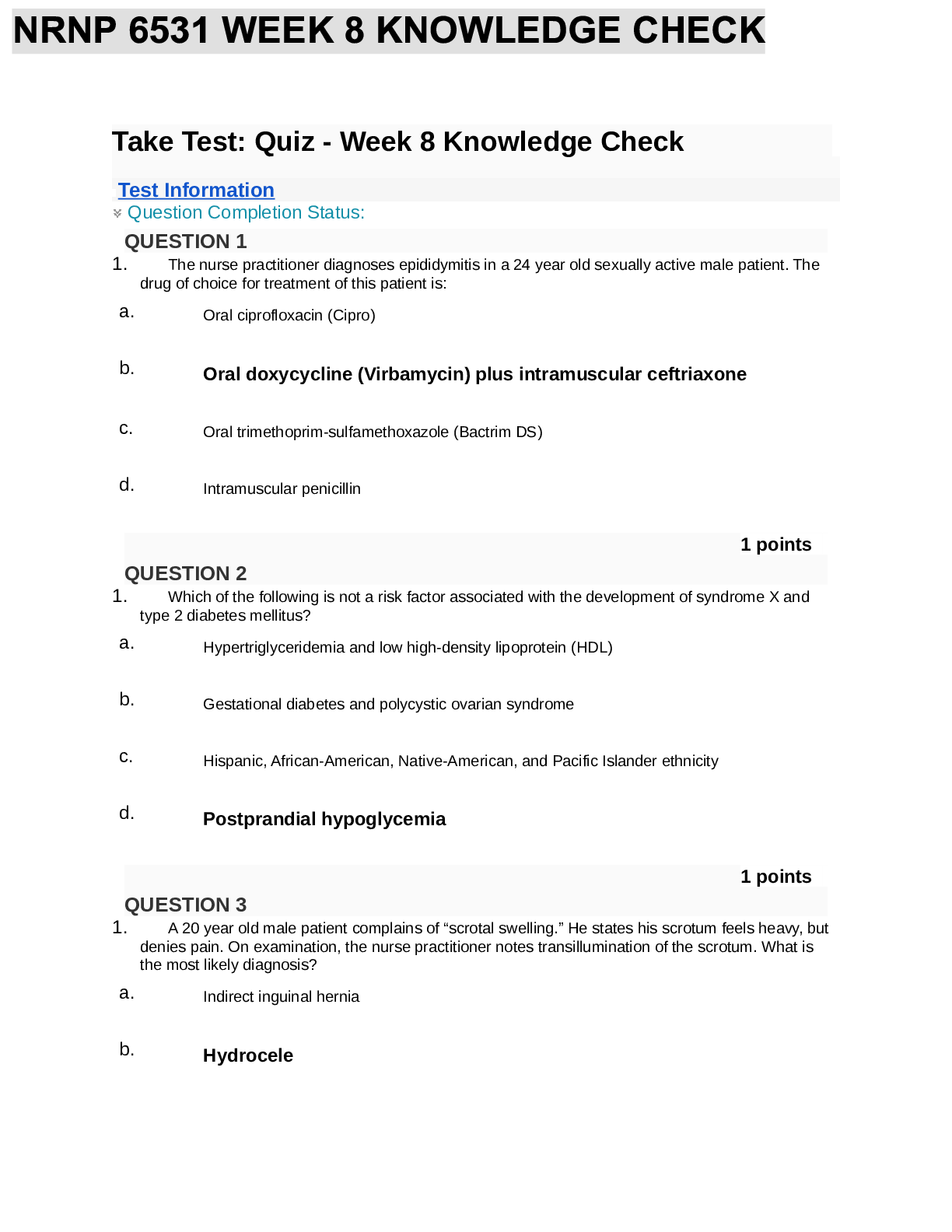







.png)




